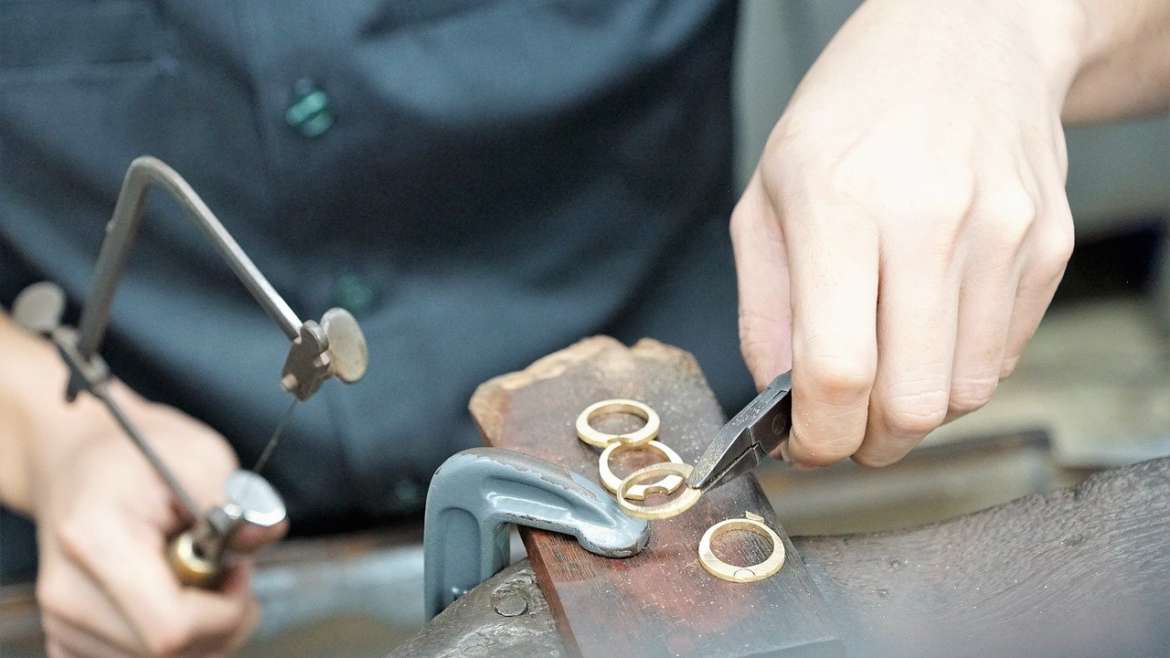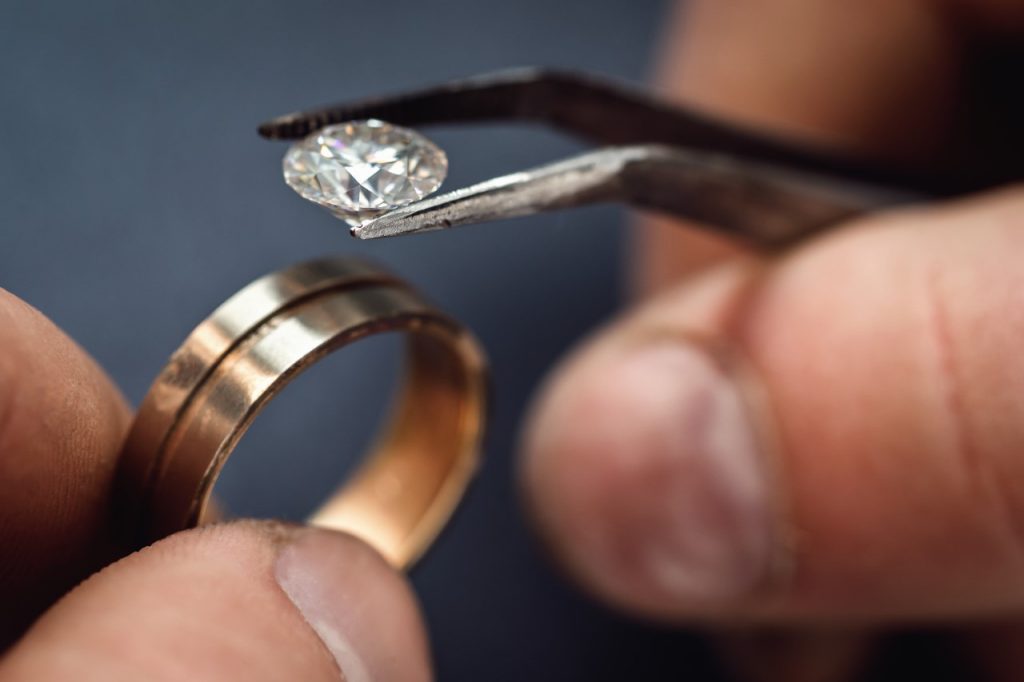Finding the Right Jewelers for Your Repair Needs: A Comprehensive Guide
Related Articles: Finding the Right Jewelers for Your Repair Needs: A Comprehensive Guide
Introduction
With great pleasure, we will explore the intriguing topic related to Finding the Right Jewelers for Your Repair Needs: A Comprehensive Guide. Let’s weave interesting information and offer fresh perspectives to the readers.
Table of Content
Finding the Right Jewelers for Your Repair Needs: A Comprehensive Guide

Jewelry, with its timeless beauty and sentimental value, often becomes an integral part of our lives. From cherished heirlooms passed down through generations to everyday pieces that add a touch of elegance, these precious items require careful handling and, occasionally, professional repair. When faced with a broken clasp, a loose stone, or a tarnished surface, locating a reliable and skilled jeweler becomes paramount.
This guide provides an in-depth exploration of finding the ideal jewelry repair specialists in your vicinity, offering practical tips and insights to ensure your treasured pieces receive the best possible care.
Understanding the Importance of Professional Jewelry Repair
Repairing jewelry is not a task for the amateur. It requires a blend of technical expertise, artistic sensibility, and meticulous attention to detail. Attempting to fix a broken piece yourself can lead to further damage, potentially diminishing its value and sentimental significance.
Here’s why entrusting your jewelry to a professional is essential:
- Expertise and Skill: Jewelers possess the specialized knowledge and tools necessary to diagnose and repair a wide range of jewelry issues, from simple repairs to complex restoration projects. They understand the intricacies of different materials, settings, and craftsmanship techniques, ensuring a professional and lasting solution.
- Preservation of Value: A skilled jeweler prioritizes preserving the integrity and value of your jewelry. They employ techniques that minimize damage, maintain the original design, and enhance the piece’s longevity.
- Safety and Security: Jewelry repair involves delicate and potentially hazardous processes. A reputable jeweler maintains a safe and secure environment, protecting your valuables from theft or accidental damage.
- Peace of Mind: Entrusting your cherished jewelry to a qualified professional eliminates the stress and worry associated with DIY attempts. You can have confidence that your pieces are in capable hands, receiving the expert care they deserve.
Identifying the Right Jewelers Near You: A Step-by-Step Guide
Locating a reputable jewelry repair specialist in your area requires a strategic approach. Here’s a breakdown of the key steps involved:
1. Start with Online Research:
- Utilize Search Engines: Begin your search by entering queries like "jewelry repair near me" or "best jewelers for repairs in [your city/town]."
- Explore Online Directories: Websites like Yelp, Google Maps, and Angie’s List provide user reviews, ratings, and contact information for local businesses, allowing you to compare options and gather insights from other customers.
- Visit Business Websites: Once you’ve identified potential candidates, explore their websites. Look for information about their services, expertise, certifications, and customer testimonials.
2. Consider Specific Requirements:
- Specialization: Do you need a specialist in antique jewelry, watch repair, or diamond setting? Identifying jewelers with expertise in your specific needs ensures a higher quality of service.
- Repair Types: Determine the type of repair you require, such as resizing rings, replacing lost stones, or fixing broken clasps. Some jewelers specialize in specific repairs, while others offer a broader range of services.
- Materials: If your piece is made of a specific material, such as platinum, gold, or silver, ensure the jeweler has experience working with that material.
3. Seek Recommendations:
- Personal Network: Ask friends, family, or colleagues for recommendations. Their firsthand experiences can provide valuable insights and help you narrow down your options.
- Local Community Forums: Online forums dedicated to your city or region can be a valuable source of information and recommendations from other residents.
- Professional Organizations: Check with local jewelry associations or guilds for lists of reputable members.
4. Contact Potential Jewelers:
- Phone Calls: Contact shortlisted jewelers to inquire about their repair services, pricing, and turnaround times.
- In-Person Visits: If possible, schedule an in-person consultation to discuss your repair needs and get a feel for the jeweler’s professionalism and expertise.
- Detailed Information: Provide the jeweler with a clear description of the repair needed, including any relevant details about the piece’s material, design, and age.
5. Evaluate and Choose:
- Reputation and Experience: Pay close attention to the jeweler’s reputation, experience, and certifications. Look for positive reviews, industry recognition, and a proven track record.
- Pricing and Transparency: Compare prices and ensure the jeweler provides a clear and detailed estimate for the repair. Be wary of unusually low prices, as they may indicate the use of less-than-ideal materials or techniques.
- Communication and Customer Service: Assess the jeweler’s communication skills, responsiveness, and overall customer service. A good jeweler should be approachable, transparent, and willing to answer your questions.
FAQs Regarding Jewelry Repair
1. What Types of Jewelry Repairs are Commonly Offered?
Jewelers typically offer a wide range of repair services, including:
- Ring Resizing: Adjusting the size of rings to ensure a comfortable fit.
- Stone Setting and Repair: Replacing loose or missing stones, securing existing settings, and repairing damaged prongs.
- Clasp Repair: Fixing broken or malfunctioning clasps on necklaces, bracelets, and other jewelry.
- Soldering and Welding: Repairing broken chains, links, and other jewelry components.
- Polishing and Cleaning: Restoring the shine and luster of tarnished or scratched jewelry.
- Pearl Stringing: Replacing broken strings and re-stringing pearls for necklaces and bracelets.
- Watch Repair: Fixing broken watch hands, replacing batteries, and performing general maintenance.
2. How Long Does a Jewelry Repair Typically Take?
The repair time depends on the complexity of the work and the jeweler’s workload. Simple repairs, like resizing a ring or replacing a stone, can often be completed within a few days. More complex repairs, such as restoring an antique piece or replacing a damaged setting, may take several weeks.
3. What Should I Expect When Taking My Jewelry for Repair?
When taking your jewelry for repair, expect the jeweler to:
- Examine the Piece: Carefully inspect the jewelry to identify the problem and determine the best course of action.
- Provide an Estimate: Offer a detailed estimate of the repair cost, including any necessary materials and labor.
- Discuss Repair Options: Explain different repair methods and their potential impact on the jewelry’s value and appearance.
- Set a Timeline: Provide a realistic timeframe for the repair completion.
4. How Do I Choose the Right Insurance for My Jewelry?
Consider the following factors when selecting insurance for your jewelry:
- Value of the Piece: Determine the piece’s current market value, including any sentimental value.
- Coverage Options: Choose a policy that covers the specific types of damage or loss you are most concerned about.
- Deductible: Understand the deductible amount you’ll be responsible for in case of a claim.
- Reputation of the Insurer: Select a reputable insurance company with a proven track record of handling claims fairly and efficiently.
Tips for Maintaining Your Jewelry:
- Regular Cleaning: Clean your jewelry regularly to remove dirt, oils, and other debris that can cause damage.
- Proper Storage: Store your jewelry in a dry, dust-free environment, preferably in individual compartments or pouches to prevent scratches and tangles.
- Avoid Harsh Chemicals: Keep your jewelry away from harsh chemicals, such as perfumes, lotions, and cleaning products.
- Protect from Impacts: Handle your jewelry with care, avoiding dropping or bumping it against hard surfaces.
- Professional Inspections: Schedule regular professional inspections to identify any potential issues before they become serious problems.
Conclusion
Finding the right jeweler for your repair needs is an essential step in preserving the beauty, value, and sentimental significance of your cherished jewelry. By following the guidelines outlined in this guide, you can confidently locate a skilled and reputable professional who will provide the expert care your pieces deserve. Remember, investing in professional jewelry repair is an investment in the longevity and enduring beauty of your treasured possessions.








Closure
Thus, we hope this article has provided valuable insights into Finding the Right Jewelers for Your Repair Needs: A Comprehensive Guide. We thank you for taking the time to read this article. See you in our next article!
